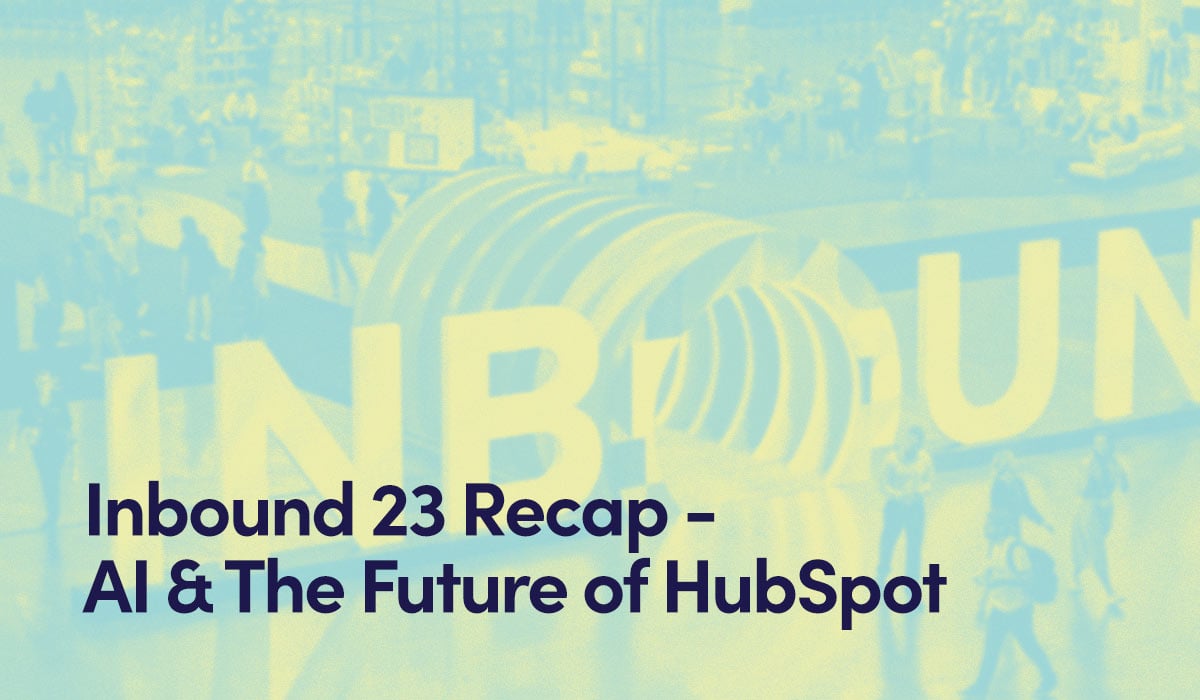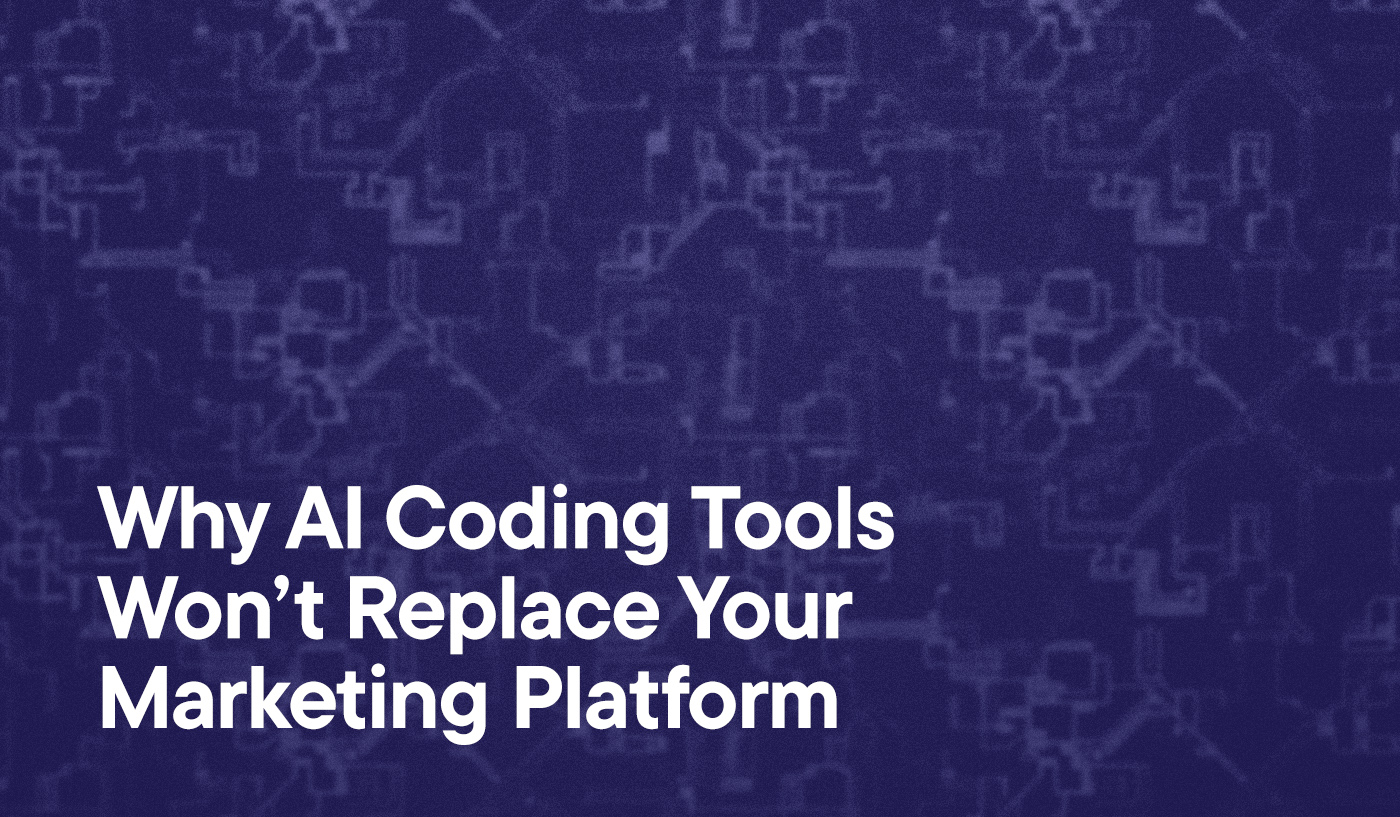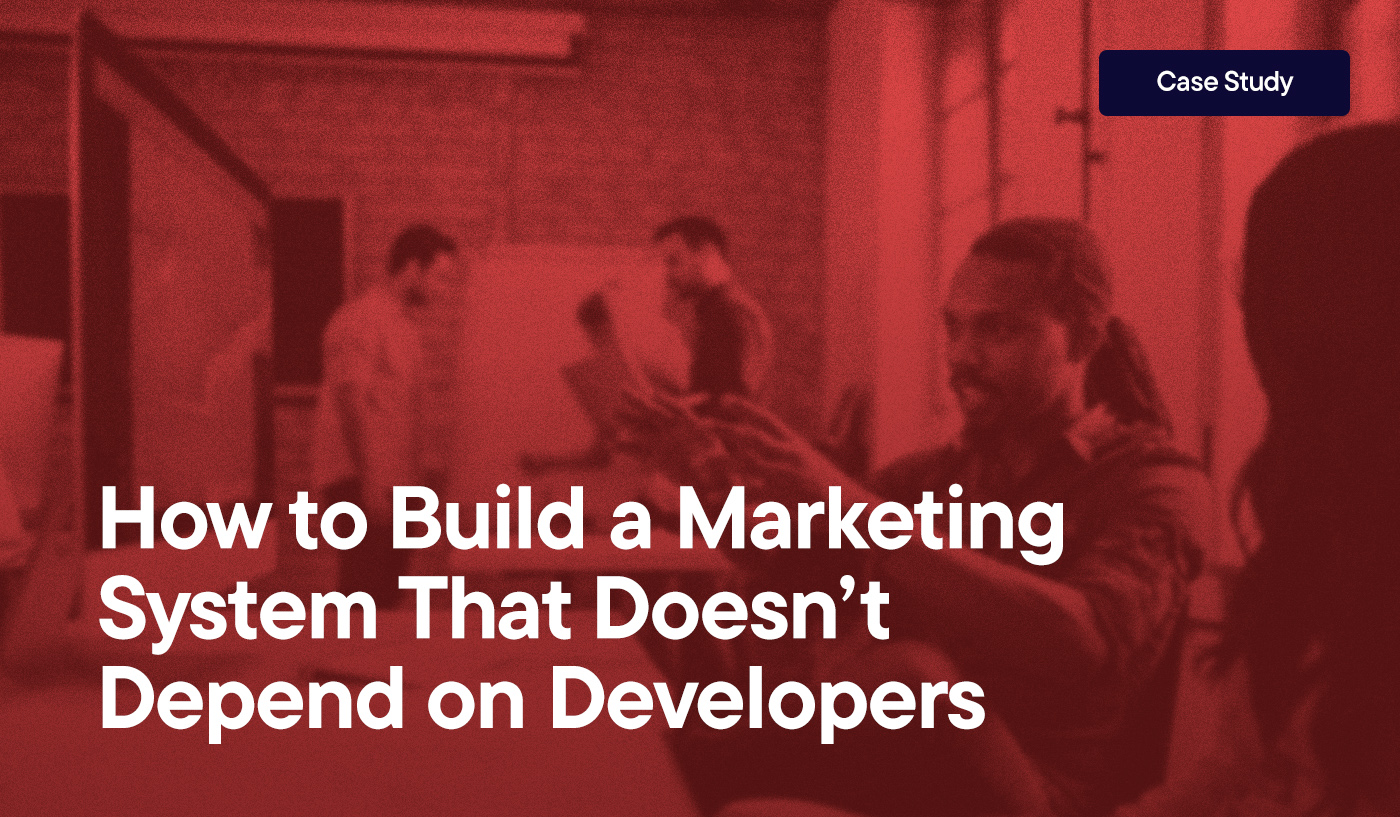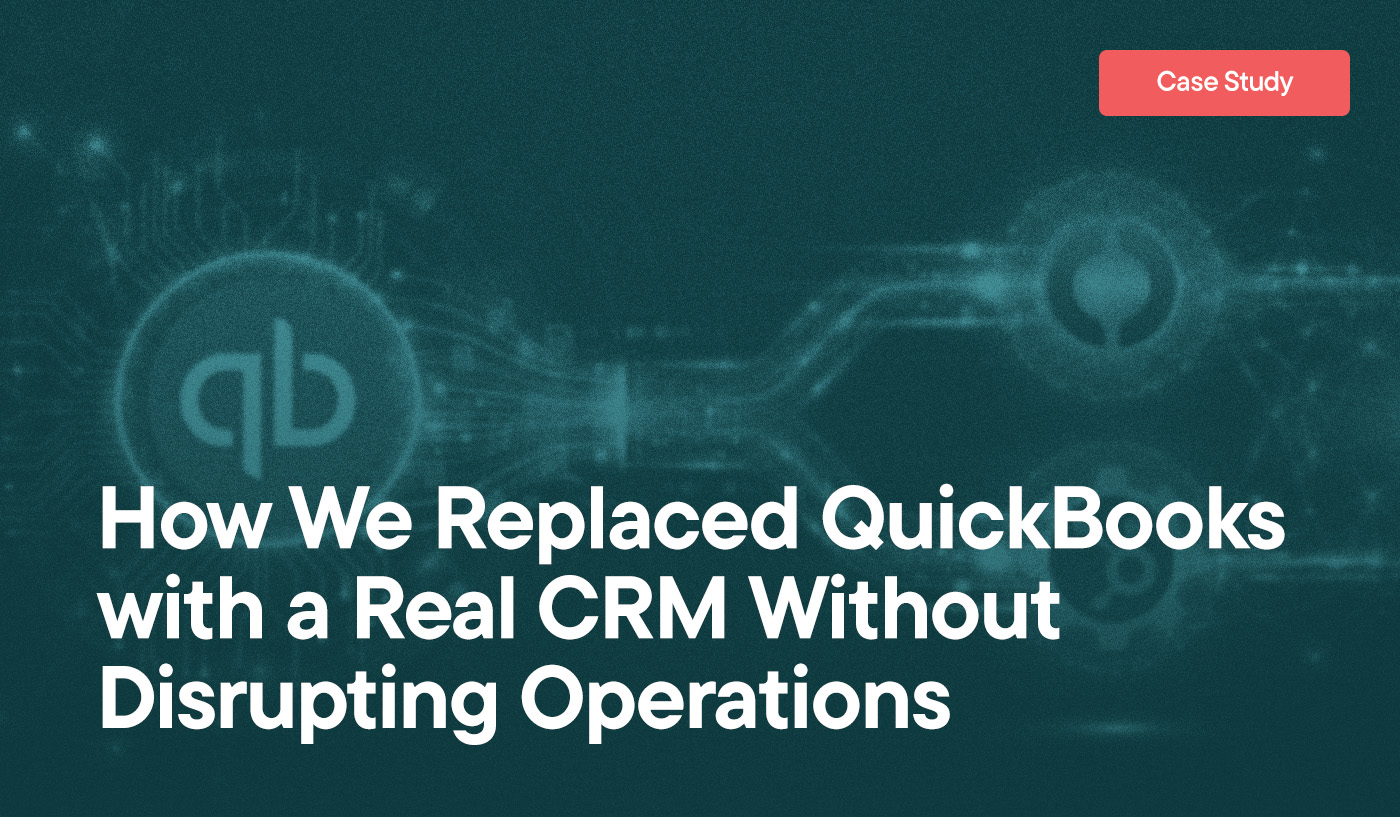The 2023 edition of HubSpot’s annual INBOUND conference was among the most significant in the company’s history. While HubSpot has previously used the conference to announce platform features and updates, this year’s INBOUND was notable for both the volume and velocity of changes—with a huge focus on embedding artificial intelligence (AI) within its product suite, as well as the downstream effects that this will have on everything from creating marketing and sales campaigns to enabling next-level reporting through natural language processing.
The Hypha team was able to attend the event in person for the first time since the COVID-19 pandemic, and we returned with a number of different takeaways from the conference. While our CEO Jed Morey previously wrote about the impact the conference will have on organizations across the HubSpot community, this piece focuses more on the practical uses of these updated hubs and tools and the impact AI will have on operations.
Key Takeaway
Before we dive into some of the specific features and takeaways, it bears repeating that the theme of INBOUND 2023 was artificial intelligence. From Partner agency previews to the CEO keynote to the individual hub updates, generative AI was front and center almost everywhere. It’s clear that HubSpot has made enormous investments of both time and resources to embed generative AI across its suite.
While many of the new product features remain in private beta, users of the Marketing and Sales hubs already have access to native tools that can help with everything from composing and editing content to optimizing titles, subject lines, and even SEO data. These tools are going to continue to evolve and improve over the coming weeks, months, and years, and look set to change the way that HubSpot clients attract, engage and delight their customers.
Product Changes
On the product side, the biggest news is obviously the launch of HubSpot AI. While many of the features are currently in beta, the vision of a future where AI acts as a productivity layer that allows users to get maximum value from the underlying tools simply by talking to them is significantly closer to becoming reality.
Case in point: ChatSpot, a conversational AI—think ChatGPT, but connected to your portal, with complete data privacy—that was first opened to select users in Q1 of 2023, with an extremely limited skill set. Just a few months later, the tool has the capacity to pull reports, add or update contacts, create email sequences, automate workflows, and even summarize videos—all within seconds, simply by acting on a user’s request.
It’s worth noting, however, that the tool is still in development. While many of its features are available and highly useful (those interested should definitely take a look at some of the pre-written prompts for specific actions), others are simply different ways to perform tasks that are just as easy to do manually, directly within your HubSpot account. That said, there’s little doubt that it will continue to improve in the weeks and months ahead, which means there’s no time like the present for taking the current iteration for a road test.
A New Approach to Sales
In terms of HubSpot’s existing solution set, Sales Hub received the biggest overhaul in advance of INBOUND—and the changes are both welcome and likely to delight sales teams everywhere.
AI, of course, now sits at the heart of the reimagined hub, with the ability to use natural language processing (NLP) to draft emails and sequences in seconds, summarize meetings and action items based on transcripts and call recordings, and surface insights related to potential clients, deal progress, and more.
Crucially, HubSpot has also gone one step further in its reimagined approach to sales, launching a new “Prospects” area that gives users a way of organizing their day, minimizing the number of open tabs or areas they need to access, and automating more of the day-to-day. Most notably, the introduction of the “Leads” feature in Prospects is a huge step forward. Similar to how Salesforce does not consider someone a contact record until their lead record has been qualified, Leads allows users to organize, prioritize and qualify new leads long before a deal is ever created. A “Lead Status” is automatically updated based on interactions that have been logged, and tags can be automatically applied based on data collected around the lead. From our standpoint, this is something that the Hypha team is particularly excited to begin leveraging both internally and on behalf of our clients.
Finally, HubSpot also announced Commerce Hub, a long-awaited solution that bundles several existing tools into one streamlined platform. By bringing together billing, payments, subscriptions, and more under one roof, Commerce Hub smoothes out the sales process from lead generation to invoice creation to revenue collection, with end-to-end visibility and reporting as standard. Initially, we see this tool as being of most use to smaller businesses, but are watching it carefully to see where the HubSpot team takes it next!
Service Hub
Moving beyond sales, the product updates at INBOUND also had some excellent news for service professionals, with some significant improvements to Service Hub—again, driven by AI. A sampling of these includes:
- AI-generated conversation summaries that can improve hand-off between agents, and even recap conversations for customers.
- A content assistant that can help agents edit, shorten, lengthen or change the tone of their messaging.
- GPT-powered chatbots that can deal with lower-level service issues. (This feature is almost in alpha at the time of writing—although it is possible to sign up for the beta waitlist).
- A comprehensive “conversations” inbox that surfaces all associated record data for the service professional, reducing the amount of time they need to spend researching issues before dealing with them.
Note: Not all of these features are live at the time of this writing. Some are in public or private beta, while others are very much in the initial development stage.
CRM and API Capabilities
HubSpot is enhancing its CRM in several ways to provide more flexibility and customization. First, it is extending the CRM by allowing custom UI cards to be built with React, the popular open-source JavaScript framework, and custom objects to extend the data model—allowing the CRM to be tailored to perfectly fit a business’s unique data and processes.
New capabilities like dependent fields and conditional logic will ensure that records more appropriately fit a business’s requirements. New reporting types like Sankey Funnels, Gauges and even Skipped Stage Deal Funnel Reports surface important information that was previously unavailable. But again, it’s the use of AI within the CRM we are most excited about. Between the data and actions that can be surfaced with ChatSpot, AI prompt-driven report building, AI forecasting, insights and recommendations, and so much more, these improvements are so substantial they were packaged and presented as a rebrand: Smart CRM.
Beyond its own ecosystem, HubSpot is also improving integrations and API capabilities to help businesses scale. To this end, the company announced an initiative to encourage organizations to develop apps within the HubSpot ecosystem to tap into a growth channel, either by building for their own needs or providing solutions to other organizations.
Keeping Humans at the Center of Business
With AI at the heart of most of its developments, it’s important not to lose sight of the fact that this technology is designed by and for humans—with improved productivity as its main aim.
That thread ran through many of the non-product-related sessions at INBOUND, with everyone from agency leaders to keynote speakers underlining the importance of focusing on the human aspect amid fast-paced AI disruption.
“A number of different presentations touched on the importance of company culture," says Sage Levene, Hypha’s VP of Marketing. “For example, Jen Spencer of Smartbug talked about building a strong remote culture—something that is important at a large number of businesses in the wake of the pandemic. That dovetailed with another theme from the conference—AI. Employees need to know that their jobs are secure throughout the AI revolution and that they’re empowered to learn, grow and adopt these tools without being penalized. AI is going to be both a blessing and a curse, and as leaders, we need to ensure it’s enhancing jobs, not taking them.”
Jamie Lynn Ryan, Hypha’s Director of Growth, pointed to similar messaging in separate keynote appearances by Derek Jeter and Reese Witherspoon.
“Both Witherspoon and Jeter dealt with concepts of overcoming adversity and rising through their respective industries as minorities in male and/or white-dominated fields,” says Ryan. “Both touched on the importance of cultivating a carefully crafted support system and spearheading initiatives designed to impact others and showcase those less represented. Those concepts spoke directly to HubSpot’s own focus on DEI, team building and leadership, and helped to underline the importance of keeping human experiences and perspectives at the center of our businesses.”
Looking Ahead
Coming off of INBOUND 2023, it’s clear that generative AI will play an increasingly central role, not just across the HubSpot suite, but in almost every aspect of our professional lives. While some features are further along than others, the progress to date has been remarkable, and marks a bold, decisive vision for the HubSpot platform—and one that we ultimately believe will lead to better outcomes for those who learn to leverage the tools effectively while balancing the human side of their organizations.
Those familiar with Hypha will know that we have a favorite saying: “The future is awesome.” Having had the fortune to spend a few days in Boston soaking in HubSpot’s vision of what that future looks like, it’s a sentiment we’re more than happy to double down on today!




